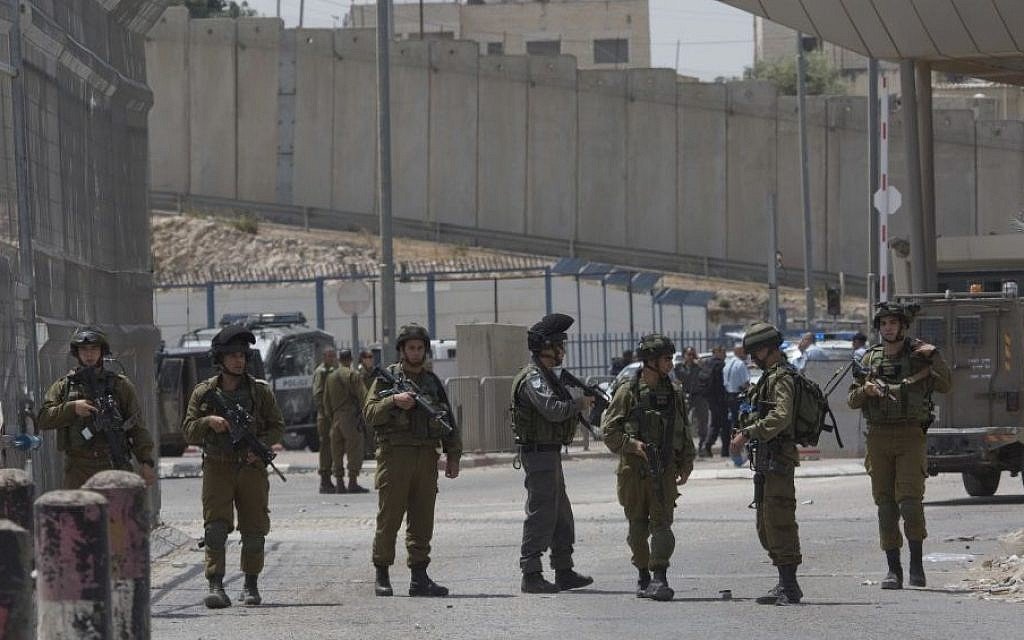
- ARAB NEWS
- 09 Jul 2025

I was aged 12 on Monday, June 5, 1967, when the Israeli occupation began. My siblings and I heard the sirens while both our parents were not at home. My older brother said we should go to the basement, where it would be safer. We took a board game and a transistor radio, which was broadcasting the “heroic” news from Egypt. The Cairo-based Sawt Al-Arab was falsely claiming that the Egyptians were bringing down tens of Israeli fighter planes that had made the initial attack on all nearby Arab military airports.
The reality was clear outside. Hundreds of people from surrounding villages, with their children and belongings, were walking into the center of Bethlehem, which was thought to be safer. We decided to do the same as my aunt had a house in the center of Bethlehem. My older brother and I had to carry our younger sisters as we walked some 3 kilometers to my aunt’s home near the Church of the Nativity.
Her house had been turned into an emergency hospital and my cousin, Mubarak Awad (who was later deported by Yitzhak Shamir for trying to lead a nonviolent struggle), was bringing the injured. My most vivid memories were of seeing some badly injured Palestinians and hearing the sounds of loudspeakers encouraging people to leave because the town was to be bombed. In addition to providing first aid, my cousin, whose family lost their father and home in 1948, was out in the streets encouraging fellow Palestinians not to heed the Israeli calls and to stay home. He may be personally responsible for tens of families not becoming refugees.
I also vividly remember the demolition of our neighbor’s house. Apparently, the Israelis suspected a family member of being involved in acts of resistance and we were all shocked when the Israeli army came and blew up their home. Nothing stuck in our memory as much as seeing the house across the street being blown up in such a savage way.
Years later, I became a journalist in Jerusalem and was detained by the Israelis for participating in a peaceful demonstration against Israeli military censorship. As a parent living on the outskirts of Jerusalem, I have spent countless hours trying to cross Israeli military checkpoints simply to be able to get my kids to school and pick them up again.
I mention these stories because, despite decades of military occupation, house demolitions, land confiscations, and constant military-run checkpoints, some are not convinced that the areas Israel took by military force in 1967 are occupied territories.
The US Democratic Party voted this week on its foreign policy plank for the upcoming election, which doesn’t even mention the existence of an “occupation” in our part of the world. The largely pro-Israeli platform also has this contradictory clause: “We believe that, while Jerusalem is a matter for final status negotiations, it should remain the capital of Israel.” If it is a matter to be negotiated, why are Democrats insisting on a biased solution while knowing full well that the Palestinians also consider Jerusalem to be their capital?
The international community, including the UN General Assembly, UN Security Council and the International Court of Justice at The Hague, all insist that the status of our land is that of military occupation. The 1949 Fourth Geneva Convention ironically agreed to regulate the role of an occupying power in an extended occupation. It bans collective punishment (such as house demolitions and travel restrictions) and refuses the right of occupiers to move their own people to occupied territories and plunder the resources, archaeological relics, land, and water rights of the occupied people. All of these have taken place on our land every day since 1967. The UN reported that, last month alone, Israel destroyed or seized 100 Palestinian structures — the highest number since January 2017. Of the targeted structures, 10 were used for humanitarian aid, including a tent used as a quarantine site.
The Trump administration and the US State Department under Mike Pompeo deleted the term “occupation” from their congressionally mandated annual human rights report. But it was very strange to also see the Democratic Party refuse to use the term in their foreign policy plank dealing with the Palestinian-Israeli conflict.
Politicians, thinkers and my own adult children are arguing energetically that the idea of an independent Palestinian state alongside Israel is no longer viable due to the many illegal Jewish settlements and Israel’s plan to annex up to 30 percent of the West Bank. They argue for a single state with equal rights for all its citizens — an idea that sounds perfect. But, for now, my only wish is much simpler.
It seems obvious that, to begin administering a cure, we must recognize the ailment.
Whatever solution is accepted by the Palestinians and Israelis should begin with an agreement to end the Israeli occupation and subjugation of millions of Palestinians. While various solutions are being discussed, it seems obvious that, to begin administering a cure, we must recognize the ailment.
Palestinians and Israelis have the right to live freely and safely, but neither side will enjoy security and independence while one party is occupying the other.
More than half a century after Israeli troops invaded our homeland, it is a fact that Palestinians live under Israeli military rule. To borrow from a slogan used in a previous Democratic presidential campaign, I would like to remind the Democrats that, “It’s the occupation, stupid.”